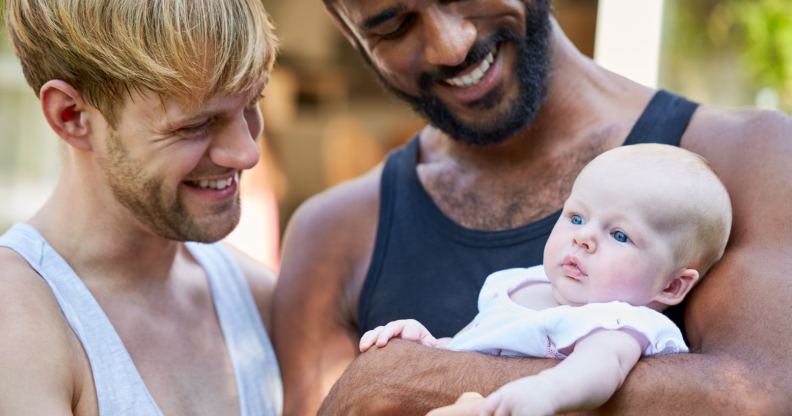Evangelical adoption agency ends ban on same-sex parents after almost 80 years

Bethany Christian Services will work with LGBT+ people nationwide following a landmark policy shift. (Envato Elements)
An Evangelical adoption agency will finally allow same-sex couples to adopt and foster children in a landmark move for queer families.
Bethany Christian Services is one of the largest adoption and foster agencies in the United States, with offices spread across 32 states.
The organisation has been working with families for 77 years and up until now has referred same-sex couples to other adoption and foster agencies in most states – but that policy has finally changed.
Bethany Christian Services’ chief executive, Chris Palusky, delivered the news to 1,500 employees across the United States in an email seen by The New York Times.
“We will now offer services with the love and compassion of Jesus to the many types of families who exist in our world today,” he wrote.
“We’re taking an ‘all hands on deck’ approach where all are welcome.”
Bethany Christian Services says families ‘look different’ today
Nathan Bult, Bethany’s senior vice president of public & government affairs, said in a statement that the organisation “has never wavered” from its mission to demonstrate the “love and compassion of Jesus to children and families”.
Bult added: “We help families stay together, we reunify families who are separated, and we help vulnerable children find safe, stable homes when they cannot remain in their own.
“These days, families look a lot different than they did when we started. And Bethany is committed to welcoming and serving all of them.
“For us to carry out our mission, we are building a broad coalition of people – finding families and resources for children in the greatest need. The people we serve deserve to know they are worth of being safe, loved and connected.”
He echoed Palusky’s comment about the need for an “all hands on deck” approach to providing safe homes for children.
Bethany Christian Services’ policy change comes in the middle of a long and protracted war in the United States between the notion of religious liberty and LGBT+ equality.
Many queer people have argued under the law that they should be treated the same as their straight and cisgender counterparts – however, many religious organisations have insisted that they should be allowed to discriminate against LGBT+ people because of their beliefs.
Bethany Christian Services found itself at the centre of a scandal in 2018 when a lesbian couple told the Philly Inquirer that they were turned away when they attended an orientation event at one of the organisation’s offices.
Megan Paszko and her wife were the first to arrive. They were quickly approached by a trainer who reportedly told them: “I just want to be upfront. This organisation has never placed a child with a same-sex couple.”
“I just couldn’t believe it,” Paszko said at the time.
“There are so many kids out there who need homes, you’re really going to deny them a good one?”
The controversy prompted the city to suspend its contract with Bethany Christian Services’ branch in Philadelphia. The city also ended its contract with another agency, Catholic Social Services (CSS), which subsequently filed a lawsuit against the city.
That case has since made it all the way to the Supreme Court, which is expected to make a ruling before the end of June.
The city of Philadelphia later reinstated its contract with Bethany after the local branch agreed to work with same-sex couples. The new policy announced this week marks the first time the group has required all of its branches to work with LGBT+ people.
The policy was apparently approved back in January. Internal discussions about working with queer people have prompted a number of board members to resign in recent years.
The company is expected to offer training to all staff in the coming months as they finally open their doors to LGBT+ people nationwide.

